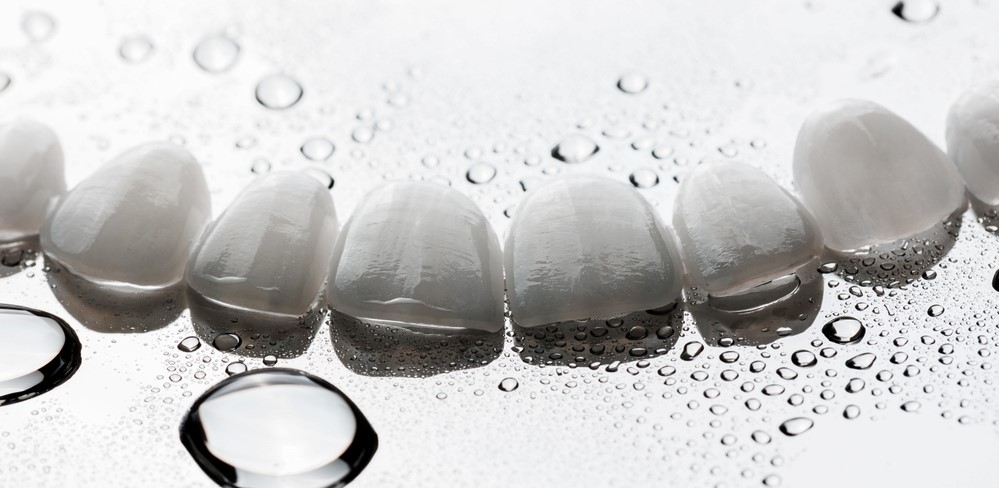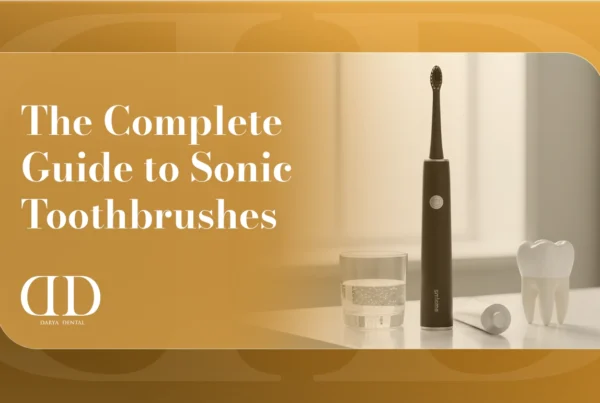A dental veneer is a thin shell of porcelain or composite material that is bonded to the front surface of a tooth. The veneer is used to improve the appearance of the tooth and can be used to correct a variety of cosmetic issues, such as discoloration, chips, and gaps.
The process of placing a veneer typically involves several steps:
-
- The dentist will first examine the tooth and take X-rays to ensure that it is healthy and strong enough to support a veneer.
- Next, the dentist will prepare the tooth by removing a small amount of enamel from the front surface. This is done to make room for the veneer and ensure that it fits properly.
- An impression of the tooth is taken and sent to a dental laboratory where the veneer is custom-made to fit the tooth.
- While the veneer is being made, the dentist will place a temporary veneer to protect the tooth.
- Once the veneer is ready, the dentist will remove the temporary veneer and clean the tooth.
- The dentist will then place the veneer on the tooth and check the fit and color. If everything is satisfactory, the veneer will be bonded to the tooth with a special dental cement.
- The dentist will then cure the cement with a special light, and make any final adjustments to the veneer as necessary.
The entire procedure usually takes two or three visits to the dentist.
It’s important to note that veneers are a permanent procedure and removing or changing them will require removal of tooth structure. Therefore, it’s very important to have a proper consultation with your dentist before deciding to get veneers.
To whom is dental veneer applied?
Dental veneers are applied to the front surface of teeth to improve their appearance. They are commonly used to fix issues such as discoloration, chips, gaps, or misalignments. They are typically applied by a dentist or orthodontist.
How much does veneer cost
The cost of dental veneers can vary widely depending on a number of factors, such as the location of the dentist, the type of veneer used, and the number of veneers needed. On average, the cost can range from $925 to $2,500 per tooth. Porcelain veneers tend to be more expensive than composite veneers, and the cost can also be affected by whether the veneers are being applied to just one tooth or multiple teeth. It’s best to consult with a dentist or orthodontist to get an accurate estimate for the cost of veneers in your specific case. Keep in mind, dental insurance may not cover the cost of veneers, because it is considered as a elective or cosmetic procedure.
Porcelain Veneers Cost
The cost of porcelain veneers can vary, but it is generally considered to be more expensive than composite veneers. On average, the cost for porcelain veneers can range from $925 to $2,500 per tooth, depending on the location of the dentist, the number of veneers needed, and other factors. However, the cost of porcelain veneers can be higher in some regions and also depending on the experience of the dentist. It’s important to consult with a dentist or orthodontist to get an accurate estimate for the cost of porcelain veneers in your specific case and also to understand the pros and cons of the procedure and compare it with the cost of other options to improve your teeth appearance.
Full Mouth Veneers Cost
The cost of full mouth veneers can vary widely depending on a number of factors, such as the location of the dentist, the type of veneers used, and the number of veneers needed. On average, the cost can range from $18,500 to $50,000 or more for a full set of upper and lower veneers. Porcelain veneers tend to be more expensive than composite veneers. It’s best to consult with a dentist or orthodontist to get an accurate estimate for the cost of full mouth veneers in your specific case. Keep in mind, dental insurance may not cover the cost of full mouth veneers as it is considered a elective or cosmetic procedure. It’s also important to understand the pros and cons of the procedure, the longevity of the material and the cost of maintenance before making a decision.
How to care for teeth after dental veneer
Caring for your teeth after dental veneers is similar to caring for natural teeth. Here are a few tips to help you maintain your veneers:
-
- Brush and floss regularly: Brush your teeth twice a day with a soft-bristled toothbrush and fluoride toothpaste. Floss at least once a day to remove plaque and food particles from between your teeth.
- Avoid hard foods: Avoid biting or chewing hard foods, such as ice or hard candy, as they can chip or damage your veneers.
- Be mindful of your bite: Be mindful of your bite and avoid grinding or clenching your teeth, which can also damage your veneers.
- Avoid Stain-causing substances: Avoid or limit foods and drinks that can cause staining, such as coffee, tea, red wine, and tobacco.
- Regular dental checkups: continue to visit your dentist regularly for checkups and cleanings to maintain your veneers and the health of your teeth and gums.
- Avoid whitening treatments: whitening treatments may cause uneven whitening and discoloration on your veneers, it’s best to consult with your dentist before using any whitening products.
By following these tips, you can help ensure that your veneers last for many years and continue to look great.
Is there any pain after tooth coating?
There may be some discomfort or pain after getting dental veneers, but it is usually mild and can be managed with over-the-counter pain medication. The level of pain and discomfort can vary depending on the individual and the procedure.
After the procedure, you may experience sensitivity to hot and cold temperatures, pressure, or biting. This usually subsides within a few days to a week.
Your dentist may also advise you to avoid hard foods, chew on the opposite side of your mouth or use a soft diet for a few days after the procedure until the teeth settle down.
If you experience severe pain or prolonged discomfort, it’s important to contact your dentist to rule out any complications.
It’s also worth noting that the process of getting dental veneers may require multiple appointments, and some steps like tooth preparation may cause more discomfort than others, but your dentist will provide you with instructions to manage any pain and discomfort.






